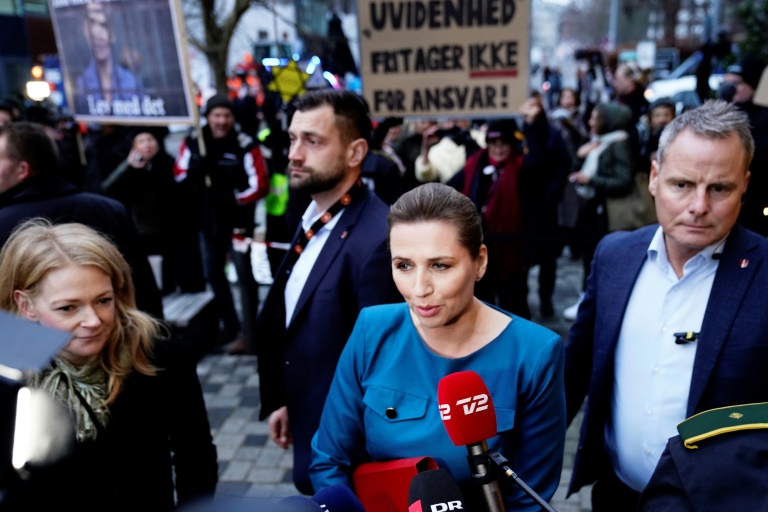Denmark’s prime minister insisted on Thursday she did not know her government’s decision last year to cull all farmed minks nationwide over fears of a new coronavirus strain was unlawful.
Formerly the world’s leading exporter of mink fur, the Scandinavian country in November 2020 controversially decided to kill all of its 15-17 million minks after studies suggested the variant found in some of the animals could jeopardise the effectiveness of future vaccines.
Speaking before a parliamentary commission investigating whether the government knew the decision lacked legal basis, Prime Minister Mette Fredriksen said she did not know and stood by her decision.
“I completely deny it,” she said, adding that if she had known, she would have simply ordered the adoption of an emergency bill to render it legal.
“It would have taken 30 seconds,” she said.
“It was in my view crucial that we acted quickly,” the prime minister told the hearing, acknowledging that she knew the decision would be devastating for the industry.
A large crowd of protesters had gathered outside the court in Copenhagen, booing Frederiksen on her arrival.
The unlawfulness of her order emerged soon after the cull was already underway and led the country’s agriculture minister to resign.
At the time, the government only had the authority to ask mink farmers in the seven municipalities affected by the mutation to cull their minks.
An agreement was reached retroactively to make the government’s decision legal, and the nationwide cull continued uninterrupted.
Prior to the cull, Denmark was also the world’s second largest producer of mink fur after China.
At the outset of her hearing, Frederiksen stressed that government decisions are made by the relevant cabinet ministers, even though she formally announced the cull.
A specially appointed parliamentary commission has since April been scrutinising the government’s decision and all documents related to it, as well as questioning witnesses to dissect the decision-making process.
Ultimately, the commission will decide whether to recommend Frederiksen’s impeachment before a special court that judges the actions of cabinet members while in office.
“So far, during the hearings, we have not seen any evidence that the prime minister was aware of the illegality,” Frederik Waage, a law professor at the University of Southern Denmark, told AFP ahead of Thursday’s hearing.
“As someone who was personally very involved in the handling of the case… it is obviously important to hear her own version of events,” Waage stressed.
– Government ‘irritated’ –
In October, controversy around the decision was reignited when it was revealed that Frederiksen’s text messages from the time had disappeared.
Her office said they had been automatically deleted after 30 days for security reasons.
But many politicians greeted the claim with scepticism. Only two of the 51 ministers and ex-ministers interviewed by public broadcaster DR said they had the same setting installed on their phones while in office.
The commission called on police and intelligence services to help, but they were unable to recover the text messages.
Media and lawmakers have repeatedly questioned Frederiksen on the issue.
According to political commentator Hans Engell, her at times annoyed responses have become a problem, allowing the opposition to capitalise on the subject and keep it in the headlines.
“It is clear that the government and Mette Frederiksen are very irritated,” he wrote in the Berlingske newspaper.
A few weeks after a partial lockdown was adopted in the North Jutland region in northwestern Denmark, where many mink farms were concentrated, the mutation was declared extinct.
The Danish parliament later passed an emergency law which banned the breeding of the mammals in 2021, which was then extended to 2022, a blow to the industry.
Mink is the only animal so far confirmed to be capable of both contracting Covid-19 and reinfecting humans.










